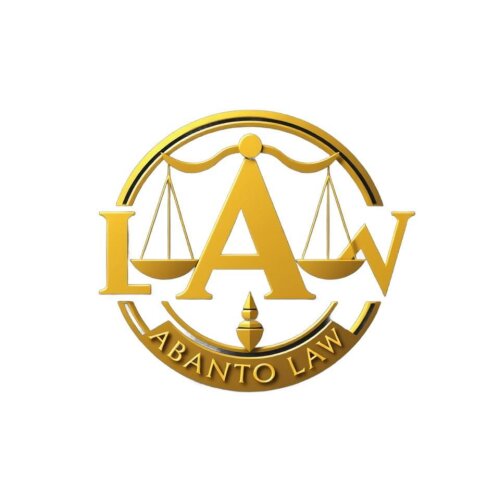Best Merger & Acquisition Lawyers in Makati City
Share your needs with us, get contacted by law firms.
Free. Takes 2 min.
List of the best lawyers in Makati City, Philippines
About Merger & Acquisition Law in Makati City, Philippines
Merger and Acquisition (M&A) law in Makati City, Philippines, plays a critical role in the corporate landscape. Makati, as the financial hub of the country, sees a significant portion of the Philippines' M&A activities. These laws encompass a wide range of regulations and procedures that govern how companies merge, acquire, or consolidate. The primary legal framework for M&A in the Philippines includes various statutes and guidelines from government bodies such as the Securities and Exchange Commission (SEC) and the Philippine Competition Commission (PCC). Understanding these laws is crucial for minimizing risks and ensuring compliance during M&A transactions.
Why You May Need a Lawyer
Legal expertise in M&A is invaluable for navigating the complex landscape of corporate transactions. Here are common scenarios where legal advice might be necessary:
- Negotiating terms and conditions of the merger or acquisition.
- Conducting due diligence to assess potential risks and liabilities.
- Ensuring compliance with local laws and regulatory requirements.
- Drafting and reviewing legal documentation, such as agreements and contracts.
- Addressing disputes or litigation that may arise during the transaction.
- Advising on tax implications and structuring the transaction efficiently.
Local Laws Overview
Makati City adheres to the national legal framework governing M&A, but it's essential to be aware of some key aspects:
- Corporation Code of the Philippines: Establishes the guidelines for corporate governance and business structures.
- Foreign Investments Act: Dictates the extent of foreign participation in business activities and industries.
- Philippine Competition Act: Aims to prevent anti-competitive mergers and ensure fair competition in the market.
- SEC and PCC Regulations: These bodies set rules on disclosure, documentation, and procedural compliance.
- Tax Codes: Encompass taxation rules and potential exemptions relevant to M&A transactions.
Frequently Asked Questions
What is a merger versus an acquisition?
A merger is when two companies combine to form a new entity, whereas an acquisition is when one company takes control of another.
Do foreign companies need approval to acquire a Philippine company?
Yes, foreign companies may need approval from the SEC and other regulatory bodies, especially if the industry involves restricted foreign ownership.
How long does a typical M&A process take?
The timeline can vary greatly, ranging from a few months to over a year, depending on the complexities and regulatory requirements involved.
What is due diligence?
Due diligence involves a thorough investigation to assess the target company’s financial, legal, and operational health.
Are there restrictions on the types of companies that can merge?
Yes, certain industries with national security or public interest implications may have restrictions on mergers and acquisitions.
What taxes are applicable in an M&A transaction?
Taxes can include capital gains tax, value-added tax, and documentary stamp tax, among others.
How can legal counsel assist in the M&A process?
Lawyers provide guidance on compliance, draft essential documents, manage negotiations, and mitigate risks.
What is the role of the Philippine Competition Commission in M&A?
The PCC reviews mergers and acquisitions to prevent anti-competitive practices and ensures the transaction does not harm market competition.
Is confidentiality an issue in M&A negotiations?
Yes, confidentiality agreements are crucial to protect sensitive information during negotiations.
Can employees challenge a merger or acquisition?
Employees may raise concerns if the transaction violates labor laws or contractual obligations, though they have limited power to stop the process entirely.
Additional Resources
For more detailed guidance, the following resources can be helpful:
- Securities and Exchange Commission (SEC): Offers regulatory guidelines and documentation requirements.
- Philippine Competition Commission (PCC): Provides information on anti-competitive practices and regulatory reviews.
- Makati Business Club: A resource for networking and business insights.
- Local Law Firms: Consultation with firms that specialize in corporate law and M&A activities for tailored advice.
Next Steps
If you are considering or are in the midst of a merger or acquisition, the following steps can help guide you:
- Conduct initial research to understand the basics of M&A processes and regulations.
- Identify legal counsel or firms in Makati City specializing in M&A law.
- Schedule consultations to discuss your needs, expectations, and any specific issues.
- Gather all necessary documentation related to the business entities involved.
- Begin due diligence to assess potential risks and compliance needs.
- Work closely with your chosen legal team to navigate negotiations and regulatory filings.
Lawzana helps you find the best lawyers and law firms in Makati City through a curated and pre-screened list of qualified legal professionals. Our platform offers rankings and detailed profiles of attorneys and law firms, allowing you to compare based on practice areas, including Merger & Acquisition, experience, and client feedback.
Each profile includes a description of the firm's areas of practice, client reviews, team members and partners, year of establishment, spoken languages, office locations, contact information, social media presence, and any published articles or resources. Most firms on our platform speak English and are experienced in both local and international legal matters.
Get a quote from top-rated law firms in Makati City, Philippines — quickly, securely, and without unnecessary hassle.
Disclaimer:
The information provided on this page is for general informational purposes only and does not constitute legal advice. While we strive to ensure the accuracy and relevance of the content, legal information may change over time, and interpretations of the law can vary. You should always consult with a qualified legal professional for advice specific to your situation.
We disclaim all liability for actions taken or not taken based on the content of this page. If you believe any information is incorrect or outdated, please contact us, and we will review and update it where appropriate.

















